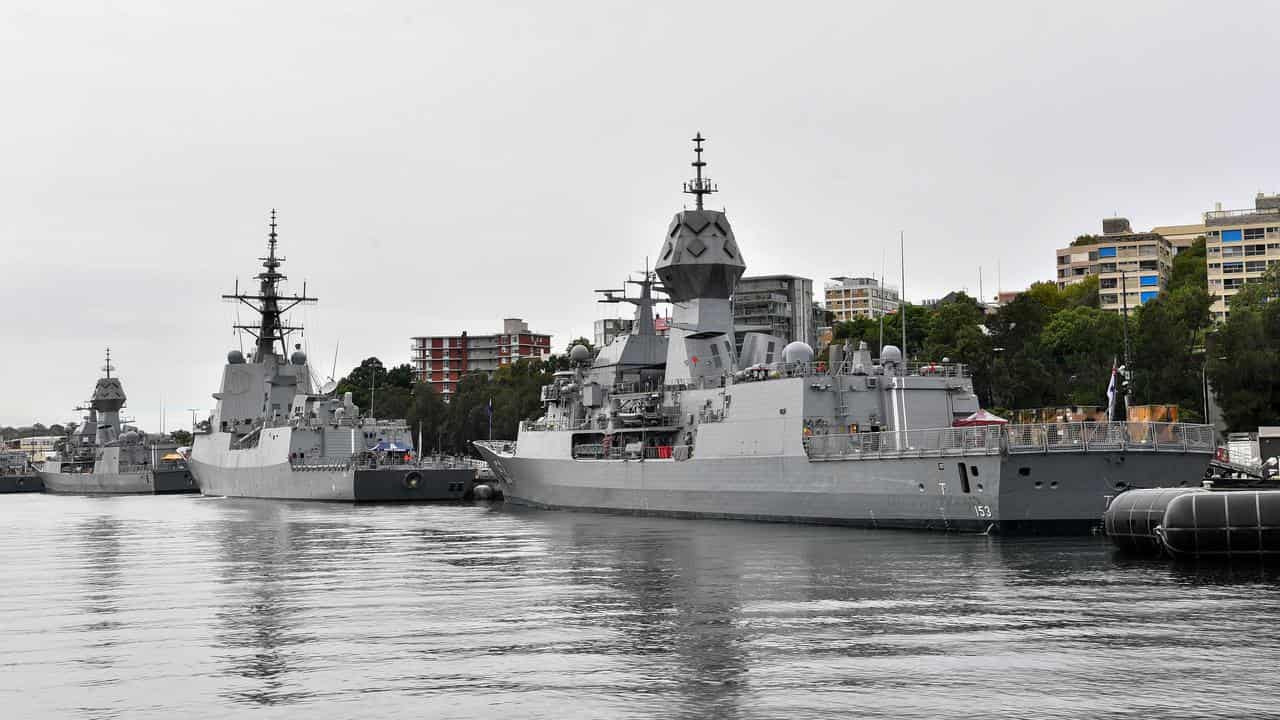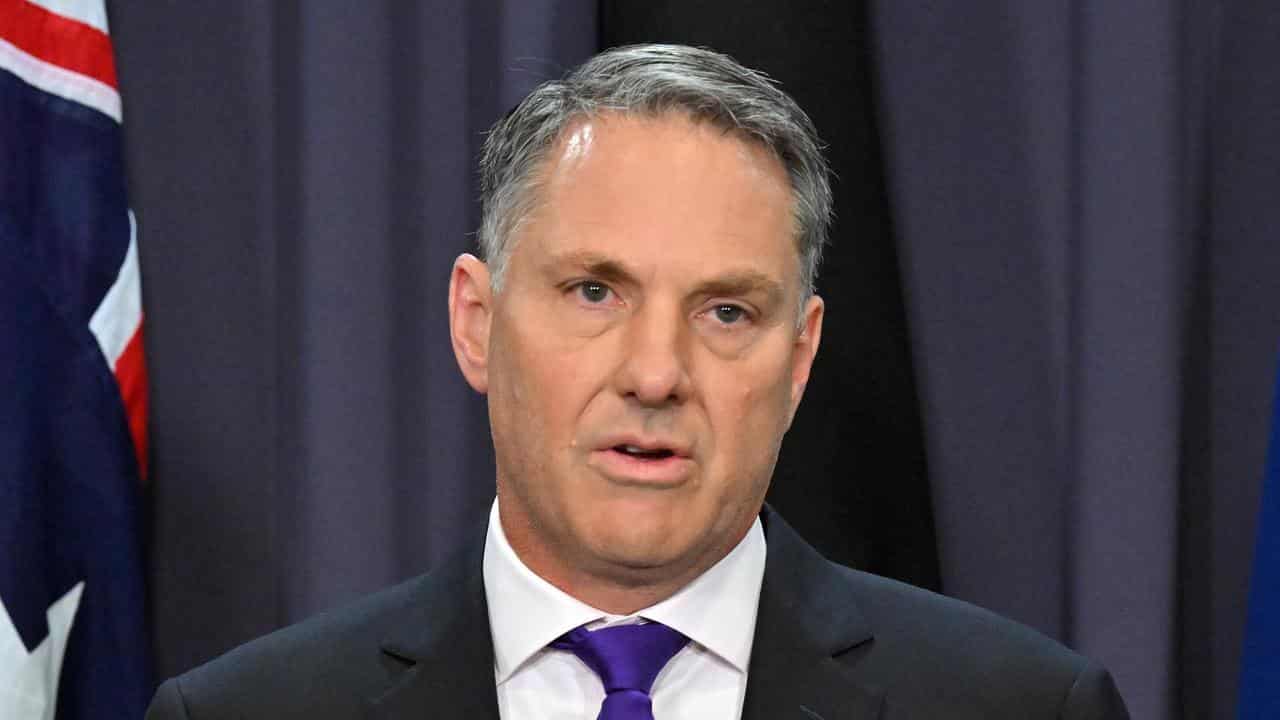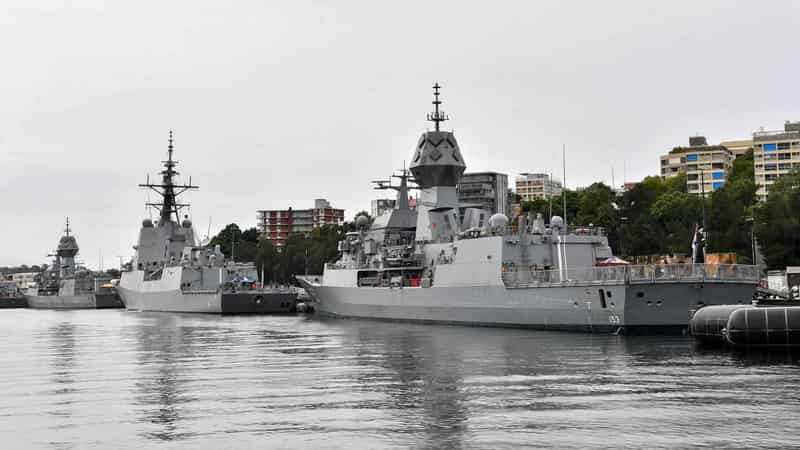
Australia has made "difficult" decisions about its defence force, as the Albanese government flags further shake-ups.
In a speech about the future of the nation's defence force on Wednesday, Assistant Defence Minister Matthew Thistlethwaite said the government had taken action to ensure it would be able to meet challenges posed by an uncertain environment.
"I acknowledge up front that some of these decisions have been difficult," he said.
Mr Thistlethwaite said the nation would see an "increased tempo of policy announcements in the next six months".
He said capabilities were being re-prioritised in line with the recommendations of a major review of the Australian Defence Force, and had resulted in a realignment of funding and projects.

Defence Minister Richard Marles on Tuesday announced an $11 billion overhaul of the nation's warship fleet, which will increase from 11 to 26 in the coming decades.
Mr Marles dismissed concerns Australia would have an issue acquiring new ships because of its history of cancelling and slashing projects.
"I'm pretty confident that there will be countries out there bidding very hard to get our work and that is already happening as we speak as you could imagine," he told ABC radio on Wednesday.
"We need to get an off-the-shelf option into the water as quickly as humanly possible and that is exactly what we are doing."
Former navy commander Jennifer Parker said feasibility was a key element, with the nation unable to afford another ship building program that did not deliver.
The government will accelerate the acquisition of new general-purpose frigates, with the first of 11 to arrive by the end of the decade.
The first three will be made overseas so they are in the water faster, and the rest will be built in Perth.
However, there will be a short term "period of vulnerability" when the navy's surface fleet gets smaller, with one ANZAC-class frigate set to come out of service in 2024 and a second to be mothballed in 2026.
"That is a risk call ... probably based on what they know now in terms of the chances of a conflict in the region," Ms Parker said.
But shifting the focus of previous governments from only building ships in Australia would allow firepower to be boosted sooner, she said.
"It’s good to see the three frigates being built overseas to allow time to build up our industry," Ms Parker said.
The government is considering designs from Spain, Germany, Japan and South Korea for the new general-purpose frigates with the final decision to be made next year.
The new fleet would become the most lethal in Australia's history, navy chief Vice Admiral Mark Hammond said.
But there were major flaws in the plan, including workforce levels and a capability gap when the Anzacs come out of the water, opposition defence spokesman Andrew Hastie said.
"There is no plan on how we will meet personnel targets, let alone crew an expanded surface fleet," he said.
Vice Admiral Hammond said he was confident the navy would be able to meet its recruitment despite struggling in the past as in the the number of people leaving had started to curtail.









